Located at 20 Old Brompton Road – Just Steps from ![]() South Kensington Tube. Easy Access, Always.
South Kensington Tube. Easy Access, Always.
Private IUD/IUS Coil Fitting or Removal Sevices in London
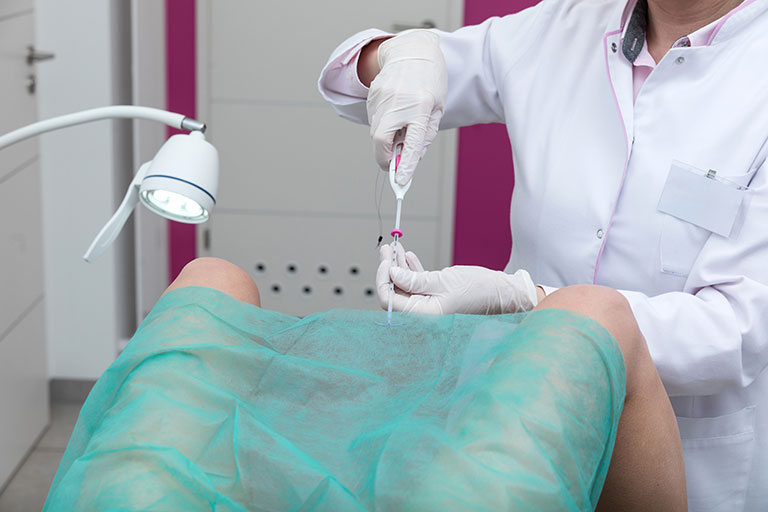
The Gynae UK is one of the most trusted private gynaecology clinic in South Kensington, London for fitting and removal of coils. We deal in both copper (IUD) and hormonal (IUS) coils. After you’ve booked your appointment with us, our private gynaecologist will involve you in a discussion to help choose the ideal coil option. The extensive consultation followed by the coil fitting procedure usually lasts about half an hour.
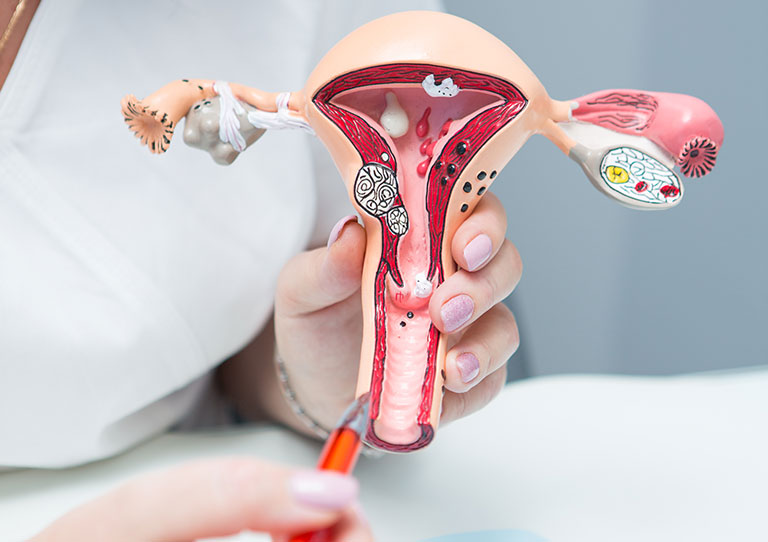
What You Should Expect During Contraceptive Coil Fitting
At Gynae UK, your appointment begins with a consultation by our consultant gynaecologist, who will review your medical history, explain the procedure, and address any concerns.
The fitting itself is carried out by our experienced doctor gynaecologist, with the consultant present for supervision. A physical examination is performed to determine the position and size of your cervix, and ultrasound guidance may be used if needed. The procedure usually takes around 10 to 15 minutes.
While some women may find the process a little uncomfortable, our team is highly skilled in ensuring your comfort and safety throughout. Numbing creams are available to help minimise any discomfort.
Different Types of Coils to Choose from
coils come in two varieties:- IUD or Intrauterine device or copper coil and
- IUS or Intrauterine system or hormonal coil (Mirena/Kyleena Coil)


IUD (Intrauterine Device)
Also commonly known as the non-hormonal coil or copper coil, it is a small, T-shaped device made of flexible plastic and copper. Your gynaecologist will place it inside the uterus to prevent pregnancy. It can be removed easily if you decide to become pregnant or choose another contraceptive method.
- The IUD is placed in the uterus, just above the cervix, and provides long-acting reversible contraception (LARC).
- It is made of copper and shaped like the letter ‘T’.
- Depending on the brand, it can prevent pregnancy for 5 to 10 years, with some types effective for up to 12 years.
- This “fit and forget” method has a very low failure rate when fitted correctly.
- It can be fitted at any time during the menstrual cycle, provided pregnancy is reasonably excluded.
- The copper coil does not protect against sexually transmitted infections (STIs) or sexually transmitted diseases (STDs).
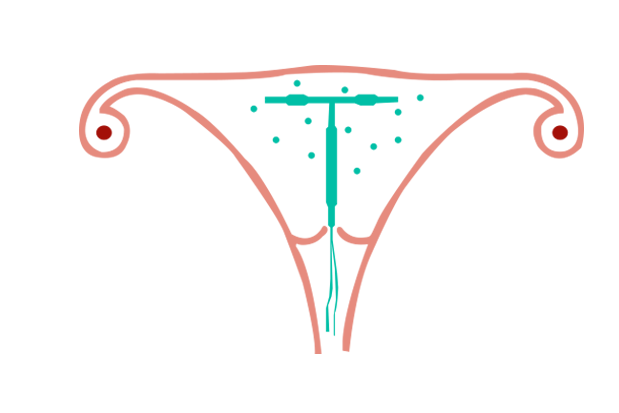
Benefits of IUD Coil
- Does not interrupt or affect your sexual activity.
- Safe to use while breastfeeding.
- Begins working immediately after insertion.
- Depending on the brand, the lifespan is typically 5 to 10 years, with some types lasting up to 12 years.
- Provides over 99% effectiveness in preventing pregnancy during its use.
- May reduce the risk of endometrial cancer.
- The non-hormonal coil does not interact with other medicines.
- Can be removed at any time, with fertility returning to normal immediately after removal.
Who is an Ideal Candidate for IUD?
An IUD can be suitable for many women. However, at Gynae UK, our gynaecologist will first review your overall health, discuss any medical conditions, and take a detailed family medical history. Based on these factors, the doctor will decide if the IUD is the most appropriate option for you.
An IUD may not be recommended for women who:
- Experience very heavy periods
- Have a current pelvic infection
- Have unexplained vaginal bleeding
- Are allergic to copper
- Have large fibroids that distort the shape of the womb
IUS Coil (Intrauterine System)
The IUS is another type of long-acting reversible contraceptive (LARC) device. Unlike the copper coil (IUD), the IUS releases a small amount of progestogen hormone to prevent pregnancy.
- The IUS is T-shaped and contains hormones to prevent pregnancy.
- It works for up to 5 years but can be removed at any time.
- It can be fitted at any point in the menstrual cycle, if pregnancy is excluded.
- The hormonal contraceptive effect begins soon after insertion.
- Like IUDs, it does not protect against sexually transmitted infections (STIs).
Benefits of IUS Coil
- Removes the need to take a daily contraceptive pill.
- Does not interrupt sexual activity.
- Does not interact with most other medicines.
- Provides contraceptive protection for 3 to 5 years, depending on the type.
- Safe to use while breastfeeding.
- Does not affect your ability to conceive once removed.
- Fertility usually returns quickly after removal.
- Can help make periods lighter, less painful, or stop them altogether.
Who is an Ideal Candidate for IUS?
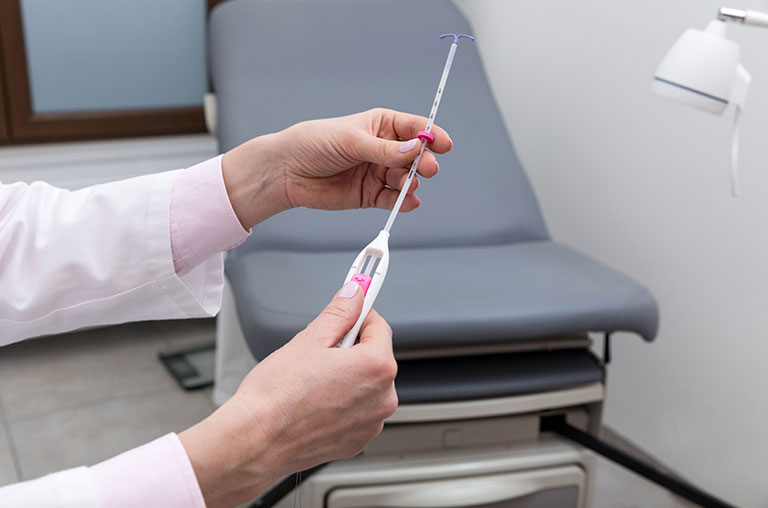
The IUS can be used by many women, including those who cannot take oestrogen-containing contraception (such as the combined pill).
The IUS may not be recommended for women who have:
- Certain heart conditions
- Liver disease
- Current or past breast cancer
- Abnormalities of the cervix
- Unexplained vaginal bleeding
- Problems with the womb’s shape
- Any untreated STI or pelvic infection
Coil Fitting Procedure
After your initial appointment, the IUD or IUS can often be fitted on the same day, provided it is appropriate. In some cases, your gynaecologist may recommend fitting after your last period, when the cervix is naturally softer. The procedure usually takes about five minutes.
A pelvic ultrasound may be offered to check the position and shape of the womb before insertion. The coil is placed through the vagina and cervix into the womb, followed by another ultrasound to confirm correct positioning. The threads will then be trimmed so they sit just inside the cervix.
An anaesthetic gel is used to make the procedure as comfortable as possible, and additional pain relief can be given if needed.
Coil Removal Procedure
The IUD or IUS can be removed at any time by a trained healthcare professional. Never attempt removal yourself. Fertility usually returns immediately after removal. At Gynae UK, we recommend booking your coil removal appointment in advance. Our specialists have a high success rate in performing coil removals safely and comfortably.
Coil (IUD/IUS) Fitting or Removal Package in London:
- Coil Fitting – £550
- Coil Removal – £400
- Copper Coil – £550
- Hormonal Coil Fitting – £650
- Coil Removal + Hormonal Coil Fitting - 700
- Coil Removal + Copper Coil Fitting - 600
Please note that the above prices are inclusive of any consultation fees
(usually£250)
Women’s Health is Our Passion
Live life to the fullest with our range of Consultant-led gynaecological services.
BOOK ONLINE NOWFrequently asked questions
Most women will experience pain and discomfort during the process. However, the pain is known to last for a short while and can be quite similar to menstrual cramps. The fitting is likely to be less painful if you’ve previously had a vagina birth since the vagina has been stretched.
Your partner may not be able to feel the thread during sex. However, if he gets to feel the thread, inform your GP, just to be sure your intrauterine device is properly positioned
You may experience irregular bleeding from time to time, especially during the first few months after your IUD has been fitted.
Well, yes! You can easily use your tampons, pads or mooncups while using the IUD.
The probability of such occurrence is quite low, but your doctor or GP will likely teach you how to feel for the threads and how to ensure that the IUD is properly fitted. However, if you can’t feel the threads or you think the IUD might have moved, the next line of action should be to contact your doctor. If you must have sex, use extra contraception like a condom until you have been properly checked by your doctor. This will help mitigate against the risk of pregnancy.
Although your chances of getting pregnant when the IUD is fitted is quite low, If you get pregnant, there is a possible risk of you having an ectopic pregnancy.
The IUD will need to be constantly checked by the doctor after three to six weeks of fitting the device to ensure there is no form of complication. It is often advised that you talk to your doctor if you notice any difficulty or problems after the initial check.
If you are between 40 years of age or older, you can still have your IUD fitted until you have reached your menopause.
Yes, the IUD can still be used by women who are breast feeding. However, you may need to wait for at least four to six weeks after giving birth before using the IUD.
The IUD can be used as emergency contraception and must be inserted within 5 to 8 days, after having unprotected sex.
We have coils in stock specifically designed for ladies who have not delivered a baby – the Kyleena coil.
Before the insertion of the IUS, you will be tested for any STIs or sexually transmitted infection, and then treated if you have any. The coil can be inserted at any time during your monthly cycle. It is just not done when you are pregnant.
Inserting the hormonal coil can be uncomfortable and a bit painful. It can be less painful if you have had a natural vaginal birth because the cervix has already been previously stretched. You will be asked to lie down with your knees bent. A speculum (the same instrument used when having a smear test) is used to hold your vagina open. An anesthetic will be applied, and forceps will be used to steady the cervix to check the position and size of your womb using a sterile probe. The coil which comes with its arms folded in a tube is inserted into the vagina via the cervix into the womb. The tube is then pulled out, leaving the coil in place.
Before removing the speculum, the coil springs are cut, leaving about 1 - 2 cm hanging down at the top of the vagina so you can feel it to be sure it's still in place. The procedure takes about 5 minutes, and some people experience cramps afterward. Pain killers can relieve this pain.
The IUS can be gotten for free on the . You might want to speak with your physician before getting one. It can be inserted by GPs and sexual health clinics, and even your doctor.
If inserted in the first 5 days of your menstrual cycle, it will begin to protect you from pregnancy immediately. If inserted at any other time, you will have to use additional contraception for a week.
There has not been enough evidence to prove that IUS will make you gain weight.
No evidence shows that an IUS will increase the risk of developing ovarian, cervical or uterine cancer.
In very few cases, about 1 in 1000 cases, the IUS can create a small tiny hole in the neck of the womb during insertion. The risk of the IUS perforating your womb is very low. However, contact your GP if there is pain after insertion; if there is perforation, the IUS will be removed through surgery. Otherwise, it doesn't affect your fertility, as you can remove it whenever you want to get pregnant.
There are two thin threads in the coil that hangs down into the top of your vagina from your womb. These threads are meant to indicate the presence of the coil. If you cannot feel the threads anymore or you think the IUS has moved, you should see a doctor or nurse immediately.
Not feeling the threads anymore means you might not be protected anymore against pregnancy, due to this; you should use extra contraception or avoid sex until the IUS has been checked.
The IUS can be removed whenever you want, but only by a doctor or nurse. Removing the IUS is relatively easier than insertion, and takes about 30 seconds.
This is highly unlikely, but not impossible. If you get pregnant while using an IUS, it should be removed as quickly as possible. You should also be scanned to be sure the pregnancy is not ectopic.
The uterus can push out the hormonal coil, but this usually happens after the coil has been placed. Although it is unlikely, it is not uncommon either. You will be taught by the doctor and nurse to check for the coil threads at monthly intervals to ensure it is still there.
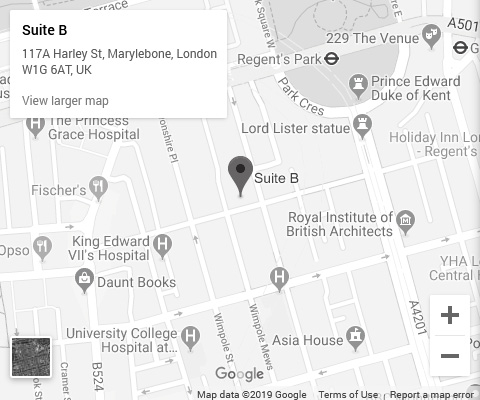 Click To View Full Map
Click To View Full Map
Contact Info
Phone: 020 71835411
Email: info@gynaeuk.com
Address:
20 Old Brompton Road, South Kensington, London SW7 3DL
Opening Hours
| Day | Opening Hours |
|---|---|
| Monday | 9am to 6pm |
| Tuesday | 9am to 8pm |
| Wednesday | 9am to 6pm |
| Thursday | 9am to 8pm |
| Friday | 8am to 5pm |
| Saturday | 10am to 4pm |
| Sunday | Closed |

